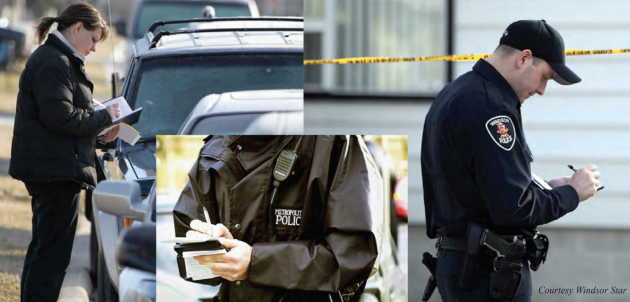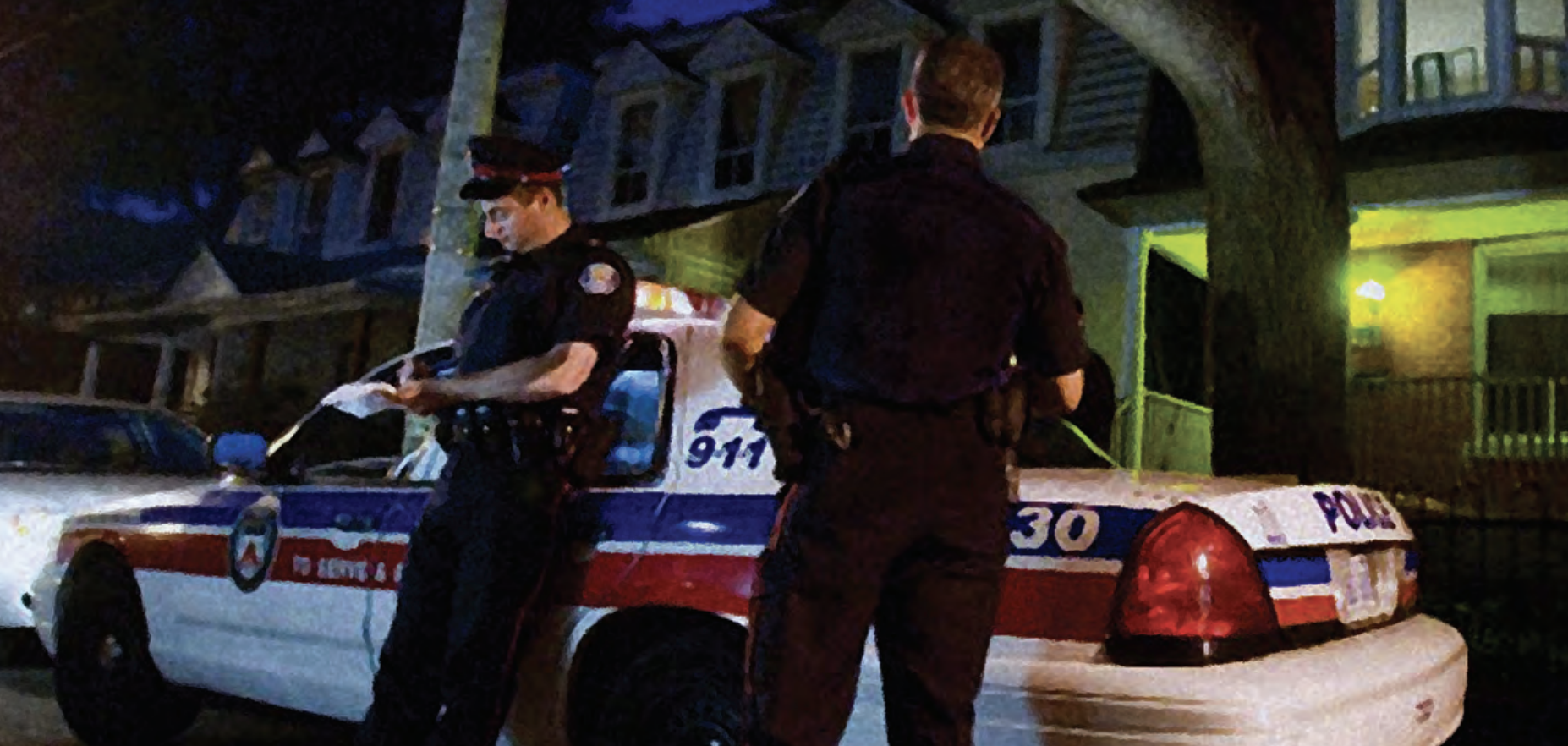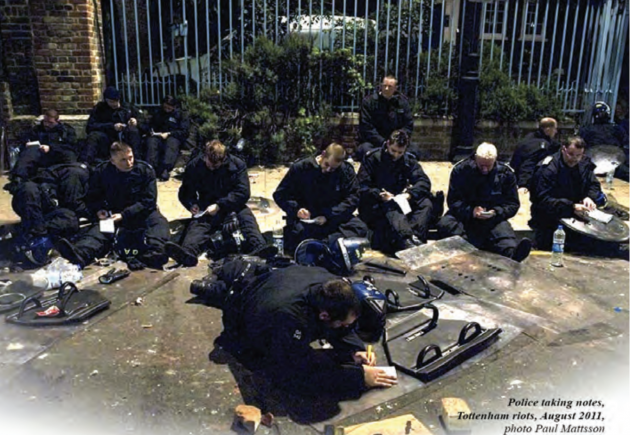
A fundamental aid and your best backup
Documentation is far superior to relying on rote memory of an event. Complete, accurate and properly maintained notes are a fundamental aid to memory and serve as a guide during investigations and interviewing witnesses, victims, suspects and accused persons, studies show.1
The following is a well considered judgement made by The Hon. Heather L. Katarynych of the Ontario Court of Justice in a 2006 ruling:
It is not “good enough” police practice… to make no notes at all in the course of an investigation. Responsible note-taking is part and parcel of a police officer’s duty, and both an ethical and legal obligation of the police. There is nothing new in this concept.
The clear message to police that they have an obligation to preserve evidence and information that is otherwise to be the subject of disclosure by the Crown was handed down by the Supreme Court of Canada a quarter century ago in Stinchcombe. That includes police note-taking. Those notes provide a connection to what the likely evidence of that witness is to be.
They feed resolution discussions. They assist both the Crown and defence counsel to prepare their respective cases for trial. In short, the duty to make careful notes of the course of a criminal investigation is not something to be causally dismissed – (R. v. B.(M.) [2006] ONCJ 526). 2
The importance of proper note-taking stated by Justice Katarynych was also detailed in the Martin Report:
The importance of proper note-taking or otherwise recording the course of an investigation can scarcely be overstated. A proper record of the investigation as it unfolds, facilitates the development of a theory of the case by the investigator in charge, which permits subsequent investigative steps to be taken with greater certainty and effect.
The case must be subsequently presented in court, and meticulously analyzed by the prosecution and the defence to ascertain whether it meets the legal standards that must be met before a conviction can result. Information must be recorded precisely enough to permit the presentation of that which is admissible as evidence in court, often many months after it is assembled, clearly and comprehensively. Even the strongest case on the facts may well founder in court if the information uncovered during an investigation has not been accurately recorded. 3
It is often said that criminal cases are won or lost before the trial even begins. It is about the investigating officer being properly prepared for the case, which includes their notes. The notebook often becomes a critical document which may be subject to close scrutiny by judicial system members. While police services practice the supervision and spot auditing of notebooks, the necessity for this procedure was emphasized within the Kaufman Report. 4
No police officer wants to be embarrassed on the witness stand because their notes lack significant details of the events surrounding the charge. An officer’s credibility is judged by the quality of their notes. This belief was supported by Bradford Smith, former senior crown prosecutor with the Justice Department of Canada:
Good police note taking is important for two reasons. First, it invariably bolsters the credibility of the police officer giving evidence. Second, it promotes the proper administration of criminal justice by facilitating the proof of facts. Conversely, sloppy police note-taking can be devastating to the credibility of the officer giving evidence and seriously, if not fatally, undermine the successful prosecution of the case.5
Yet, despite well documented criticisms and recommendations by members of the judicial system, issues surrounding poor note-taking continue. Unfortunately, the criticism for having presented inadequate notes often embarrasses the officer, their service and the entire judicial system.
This brings us to the obvious question: Why do incidents of poor note-taking continue to happen? The Kaufman Report, which was further substantiated in a recent RCMP audit, cites a number of factors that contribute to poor note-taking.
The internal audit reviewed a number of officer notebooks. Although it concluded notes were being recorded in a timely manner and mostly compliant with policy requirements, there remains room for improvement. The auditors concluded that “notebooks did not always have all of the core components required by policy.”6 The core components referred to in the RCMP operations manual include the basics of note-taking.7 Simply put, a number of officers failed to follow the basics.
The ABCs of note-taking
What is to be recorded?
Notes must contain an accurate and complete account of police observations and activities and should answer the following very simple questions (The following is not an exhaustive list since each unique situation will dictate what should be recorded):
WHO
Are the victims, accused and witnesses?Conducted the investigation?Preserved the scene?Conducted the search?Obtained evidence?Took custody of the evidence?Was at the scene?Else had a role in the investigation?
WHAT
Offence was reported?Is the source of the information?Offence was committed?Was seen (including all the senses – smell, sound, etc.)?Statements were made by the victims, accused and witnesses?Evidence was obtained?Action was taken?
WHEN
Was the offence committed and reported?Did the officer arrive at the scene?Did the officer contact the victim and take a statement?Did the officer obtain each item of evidence?Was the accused informed of the rights to counsel and cautions?Did assisting officers arrive at the scene?Did the police officer make his/her notes?
WHERE
Was the offence committed?Was the offence reported?Were the victims, accused and witnesses?Do the victims, accused and witnesses reside?Was the evidence obtained?Was the evidence stored?Did the officer interview victims, accused and witnesses?Did victims, accused and witnesses make their statements?
HOW
Was the offence committed?Was the offence discovered?Was the offence reported?Did the accused commit the offence?Did the accused respond to police rights to counsel and cautions?Did the victim get to the hospital?
WHY?
Was the offence committed?Was the offence reported?Was there a lapse of time between the committing and reporting of the offence?Did the accused commit the offence?Was a witness eager, or willing, or hesitant to give information?Was the victim moved from the scene?
Ensure notes are legible
Officers have had difficulty testifying because they were unable to read their own writing. This becomes even more difficult with the passing of time. If notes are not legible, officers should have them transcribed and brought to trial along with the originals. In short, officers lose credibility because of sloppy or illegible notes.
For this reason, all entries should be made in ink. It is advisable to include the reason in the notes when changing from the same ink pen (i.e. ink froze or raining, used other pen or had to resort to pencil). Simply, make notes by whatever medium is available given the circumstances and be prepared to justify and explain the reasons directly within the notes for using a different writing instrument.

Be objective
An officer’s notes should reflect professionalism and fairness. Notes will corroborate your credibility as a competent, thorough and fair officer.
The Martin Report made it clear that police have an obligation to disclose the fruits of their investigation to the Crown, including all information that may assist the accused:
The pre-existing duty on the part of the police to provide full disclosure to Crown counsel is as important as it is uncontroversial. In most circumstances, the police are the principal source of all information that subsequently becomes evidence in a criminal prosecution. The police, as the investigative arm of the state, have the primary responsibility for acquiring such evidence. However, it is Crown counsel who must conduct the prosecution.
Crown counsel cannot do so effectively or responsibly without being apprised of all that is relevant. Material that assists an accused may be particularly important, as Crown counsel must prepare to deal with such material in court. Alternatively, material favourable to the accused may lead Crown counsel to withdraw the charge, or require further investigation.
Police disclosure to the Crown is also important in that it allows Crown counsel to discharge his or her constitutional obligation to then disclose all relevant information to the accused. 8
In Ontario, full disclosure that is fair and objective is also governed by the Code of Offences. This regulation provides that an officer is guilty of neglect of duty if he or she: “Fails to report anything that he or she knows concerning a criminal or other charge, or fails to disclose any evidence that he or she, or any person within his or her knowledge, can give for or against any prisoner or defendant.” 9 Other provinces have similar legislation placing the onus on officers to record all information, including disclosing all material that may be beneficial to the accused.
Leave no spaces between entries
Police notes will be subject to examination and scrutiny by supervisors, Crown and defense counsel and judges. It is difficult to allege that additional notes were made at a later time if an officer leaves no spaces between entries.
Some police services will include copies of all police notes within a Crown Counsel Brief. Even if not originally included, they will often be forwarded to the Crown for disclosure purposes. The Crown must receive full disclosure and should be consulted in issues where any notes may compromise the integrity of an investigation. 11
(Note: It is a common practice within some police services for police officers to leave a space at the end of each shift for the signature of a supervisor. This space appears after the authors’ signature and may also be inserted after recording regular/medical/annual leave, etc. day(s) off. It is vital that consistency is maintained throughout a duty book.
If a space is required to be left for the above purpose then such space must be left at the end of every shift. A police officer must be able to justify any and all entries, errors, omissions and deletions within his or her duty book. The officer can record commonly referred to material at the back of their notebook. (i.e. for street hostels, emergency numbers, towing services, etc.)12
Errors and additions
Should an error be made, draw a single line through the centre of the error, ensuring that it remains legible. The officer should then place their initials on the line and continue with their entries.
Where an officer makes a correction from their original notes, the current date and time should be noted. In addition, the officer should make an entry cross-referencing the original page number containing the error and stating why the correction was made after the fact.
Also, where an officer makes an addition to their notes, they could clearly mark these additional notes as “L.E.” for Late Entry. The officer should make an entry under the current date and time, cross-referencing the original page number, along with the reasons why the addition was made at a time other than the original entry. This will allow them to fully explain why the notes are not in chronological order.
Whenever an officer makes changes or additions to their notes after initial disclosure to the Crown, the officer should forthwith bring these changes or additions to the attention of the assigned Crown in writing and provide copies of the notes highlighting the changes or additions. Both of these basic rules will enhance the officer’s credibility should the Crown or defence wish to question the officer during the trial process.
Second notebook
Under NO circumstances should a second notebook be kept or maintained by an officer unless authorized in writing by a supervisor. Ideally, provisions for this will exist in local police service policy. An example of this might be where an officer is assigned to a special investigation and a different size notebook is authorized for that type of investigation within that police service.
Original notes
Police officers will often make rough notes within their notebooks or on scrap pieces of paper. These need to be dated with a time, as well as initialed. It is permissible to rewrite these rough notes properly into the notebook. When doing so, officers should rewrite the notes using the current date and time, and identify where the rough notes are found. Remember that the rough notes are the originals and must be disclosed to the Crown. The key here is full disclosure and keeping the originals.
The use of electronic police notes is increasing dramatically. Great care must be taken that these notes are maintained to the same high standard as regular hard copy notes. Officers should follow their own service policy and the advice of the local Crown office pertaining to electronic notes.
End of shift
Make sure notes are completed at the end of shift, including a signature. An officer should make a consistent break between shifts such as a double horizontal line below their signature and across the entire page. In the event of a call back, or next working shift, they are then ready to receive the new information in proper order, avoiding any gaps.
Ensure that all shifts are recorded, including any days off (i.e. – R.D.O. for regular day off or A.L. for annual leave). Every day of the year is then accounted for within the notes.
Note-taking is an essential component of police work. Notes serve to refresh memory, assist officers with investigations, record evidence and support criminal and provincial prosecutions and other tribunal hearings. In the words of Ontario Court of Appeal Justice Sharpe, “reliable independent and contemporaneous police officer notes are central to the integrity of the administration of criminal justice”. 13
In R. v. Green, Justice Malloy stated:
An officer’s notes perform a valuable function at trial. It is usually many months, sometimes years, from the time of an occurrence to the time that the officer is called upon to testify at trial. Without the assistance of notes to refresh his or her memory, the evidence of the officer at trial would inevitably be sketchy at best.
If the officer’s notes are prepared without any indication of which is the officer’s independent recollection and which is somebody else’s recollection, there is every likelihood that that officer at trial will be “refreshing” his or her own memory with observations made by someone else. In effect, the officer will be giving hearsay evidence as if it was his or her own recollection rather than the observations of somebody else written into the notes without attribution.14
In closing, former Crown Prosecutor Bradford Smith eloquently captures the importance of proper note-taking and reinforces why an officer would wish to ensure that their credibility is never tarnished by having poor notes during a critical trial:
Sloppy police note taking is bad for the in-court credibility of a police witness. It undermines the successful prosecution of a case. The good news, if you are a diligent and competent note taker, is that when you are cross-examined by criminal defence lawyers…. you will have the benefit of detailed notes to refer to.
Cross-examination by defence counsel will not be an uncomfortable experience (or at least not as uncomfortable as it otherwise would be). You are more likely to find the judge describing you as a credible witness. And importantly, rather than creating gaps in the story of the case, your evidence will provide necessary detail, thereby facilitating a very important legal objective – the proper determination of criminal charges on the merits.15
*Originally published in the August/September 2015 issue of Blue Line.
Footnotes
- Ontario Police College Needs Analysis for Advanced Patrol Training 1994; R. Hoffman, P. Hutchin, Mauro Succi; Ibid. 1997; Dr. G. Brown, R. Hoffman, P. Hutchin, Mauro Succi
- R. v. B.(M.) [2006] ONCJ 526
- Ontario Ministry of Attorney General, Criminal Law Division, Martin Report of the Attorney General’s Advisory Committee on Charge Screening, Disclosure and Resolution Decisions, 2006
- Kaufman Commission on Proceedings Involving Guy Paul Morin, Recommendation 100, 1997
- Smith, Bradford, Law Corporation, www.smithlitigation.com, 2014
- R.C.M.P. Audit of Investigator’s Notes, 2014
- R.C.M.P. Audit, IBID
- Martin report, IBID
- Police Services Act of Ontario, O.REG. 268/10, s 2(c)(vii), 2010
- For example, refer to Alberta Police Act, A.REG. 356/90, s.5(h)(vii)
- R. v. Stinchcombe [1991] 3 SCC 326
- Ontario Police College, Basic Constable Training, Evidence Guide, 2014
- Schaeffer v. Wood [2011] ONCA 716
- R. v. Green, [1998] O.J. No. 3598 [(O.C.J. (Gen. Div.)]
- Smith, Bradford, IBID
Mike Souliere is the co-ordinator of Search and Seizure at the Ontario Police College. He may be contacted at mr6shoe@hotmail.com.
Print this page

